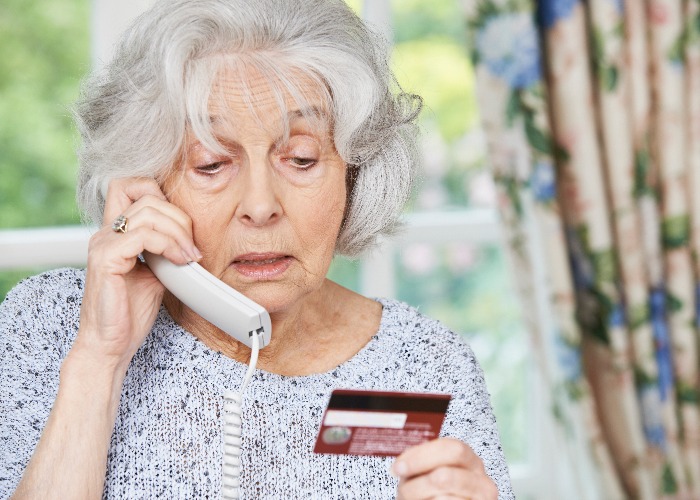How to protect the vulnerable from scams and cons – report

New report calls for large bank payments from vulnerable people's accounts to be delayed and more done to protect their personal data.
Three simple changes could “dramatically reduce” the number of vulnerable people losing money to scammers, a new report has claimed.
The Chartered Trading Standards Institute (CTSI), which represents trading standards professionals in the UK, has called for banks to delay large payments from vulnerable people’s accounts by 24 hours.
A carer should then be alerted via text so they can cancel the transaction if needed.
The organisation also wants to ensure personal data isn’t shared without a clear opt in and, crucially, not held for longer than 12 months before permission is sought again.
This would prevent them ending up on a “suckers’ list” that is traded between scammers, the report said.
Thirdly, it believes charities and organisations need to recognise their duty of care to dementia sufferers “who could make an ‘unwise decision’ as a result of their cognitive state.”
Who is most at risk?
The author of the report, Professor Keith Brown, said these changes would greatly reduce the risk of vulnerable people being scammed, although he conceded more could still be done.
“We believe our three main asks are both achievable and would make the greatest impact in reducing the risk of being scammed for the most at risk citizens in our society,” he said.
“In particular, those at risk are lonely older people, and specifically those with a cognitive impairment dementia who may be unable to safeguard themselves as a result of their health or social care needs.
“However, this work is far from complete and we are continuing to research and develop our ideas and understanding.”
Check your credit report for signs of suspicious activity
What the CTSI said
Leon Livermore, CTSI chief executive, added: “Vulnerability is not a term that is defined in law which means it is difficult for professionals to introduce measures to protect vulnerable people.
“We believe that banks and charitable organisations can do more without the need for legislation and that these relatively straightforward asks would lead to a dramatic reduction in detriment.
“Adult social care faces a massive funding shortfall and people who are scammed are much more likely to need support. These measures will protect our ageing population and reduce the burden on the state.”
Safety tips for all of us
While more obviously needs to be done to help those most at risk, it's important to remember that any of us could fall victim to a scam.
To help you stay safe, read up about how scammers are changing their tactics and also our guide to spotting a phishing email.
More scam alerts from loveMONEY:
Phone scam: victims 'lose cash' after missed call
Watch out for fraudsters claiming to be from the Financial Ombudsman Service
Comments
Be the first to comment
Do you want to comment on this article? You need to be signed in for this feature